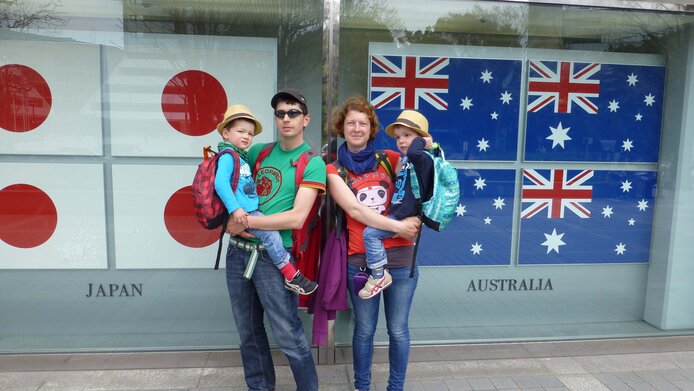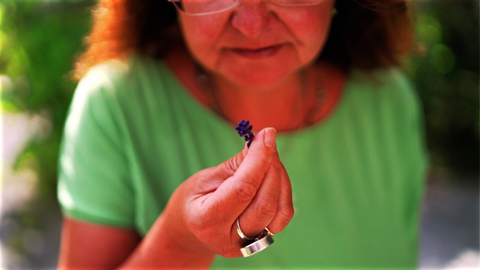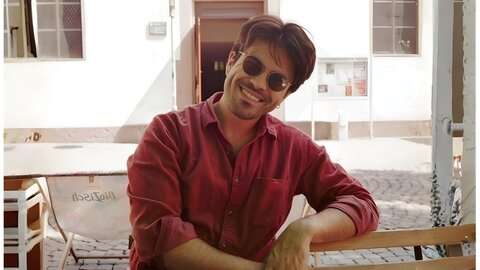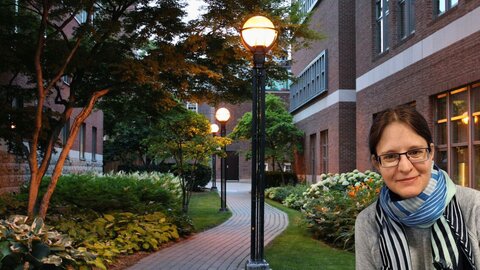Kangaroos and cherry blossoms

By Christoph Aistleitner
From 2012 to 2015 I was awarded a FWF Schrödinger Fellowship which took me in the first year to the University of New South Wales in Sydney, Australia. My second year was spent at the University of Kobe in Japan, and the third year, the so-called “return phase”, at the University of Linz. As a mathematician I never cease to marvel at how well my scientific discipline lends itself to international co-operation: two mathematicians, no matter what their nationalities, don’t need more than a sheet of paper and a pen in order to be able to work together at virtually any place in the world. Direct personal contact is of immense importance in this context: although co-operation by email or Skype is possible in theory, it is really unbearably tedious. Personal co-operation, on the other hand, can be inspiring – even if it may be interrupted by breaks of several days or weeks in which to “digest” novel ideas, before further progress can be made on a consolidated basis.
Scientists and their destinations
Scientists are human beings – this sounds banal, but is a fact that official bodies often tend to forget or expect this to take a back seat to “superior” official or professional interests. At the time I applied for the Schrödinger Fellowship I had just become the father of twins, which meant I had to gear my application not only to include places where fruitful scientific co-operation could be expected, but also to ensure that my family could spend an interesting and pleasant time – taking into account healthcare facilities, overall quality of life and – may one say it out loud? – some level of “value added” from a touristic point of view.
The decision was taken to go for Australia and Japan – both countries with a high quality of life plus good healthcare systems and, moreover, both so interesting and exotic that it was definitely worth our while to go and spend a year there. Oh and yes: I did also find excellent potential co-operation partners in both countries.
The hassles of daily life
When we travelled to Australia, my children were just about a year old. – The entire trip, including various delays and interruptions, took a total of almost 54 hours. Upon arrival in Australia we were greeted by jetlag, flu, the search for a home and, after that, the need to furnish our home, fix ourselves up with mobile phones and internet and a bank account, mount baby cribs, get prams and a hundred other things. Then we moved to Japan, and everything started all over again. I remember that a few weeks into our stay in Australia I was sitting exhausted at home there with my wife, and we were shaking our heads in dismay, wondering whether there would ever come a point when we would look back on that time and have only fond memories. But yes, we have reached that point and it is actually true: when I think of my years abroad I never think of the hassle and organisational chaos, whereas I do remember stepping out of the door in the morning and seeing parrots in a multitude of colours flying across a bright blue sky, accompanied by the screams of cockatoos.
The beautiful moments
I think of the freedom to spend a beautiful day not at my office but at the beach and go to the office instead on a rainy day. The giant flying foxes in Australia that circle the sky at dusk. Barbecue facilities in parks where you could grill meat that you brought along with you at no charge. Or the week of the cherry blossoms in Japan, when the whole city looks as though wrapped in cotton wool, comparable to our Austrian towns after a fresh snowfall. There were frequent festivals that you encounter unexpectedly and whose significance escapes you completely: everyone carrying decorated brooms, small piles of salt at every corner, great towering wooden carriages being pulled through the streets. Supermarkets where you could wander around for hours without finding anything you would be able to identify unequivocally as food among all the dried fish and algae – and how often would we find out at home that we had bought something entirely different from what we had thought. That was everyday life, not holidays – but we also had holidays, of course.
Lasting memories
Holidays meant being on a dusty road near Canberra with dozens of kangaroos in front of our car so close one could almost touch them. Riding on a train along the coast of New Zealand, hundreds of kilometres along a beach in an open panorama car, the stench of a huge rotting whale carcass lingering in our noses for ages. Or waking up in the morning in a Ryokan, a traditional Japanese hotel, with the smell of the rice-straw mats on the floor and a view across Lake Kawaguchi to Mount Fuji in the bright morning sun, in the foreground the deftly shaped topiary trees covered in fresh snow. Or being on a ferry on the Japanese inland sea, gliding through the island landscape on a mild summer night, sipping sake in the evening sun. – Sorry, I got carried away again. Yes, I did also manage to work – and quite successfully, at that.





